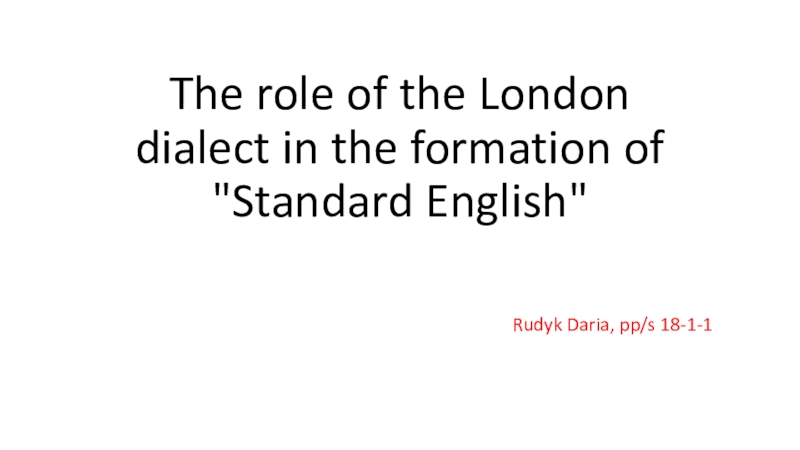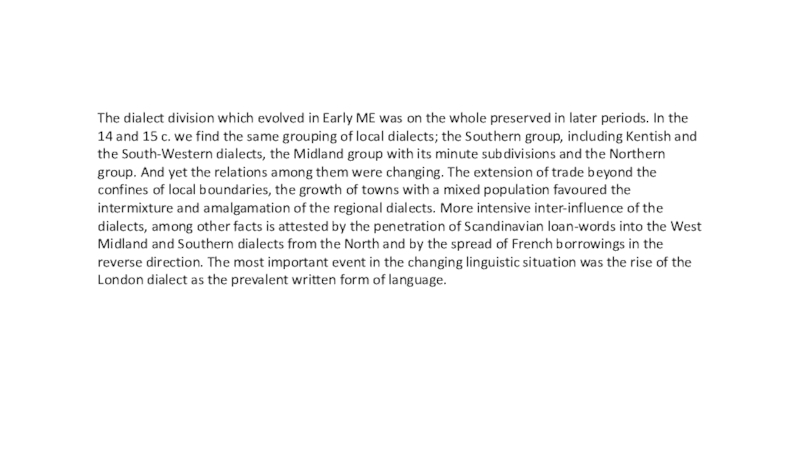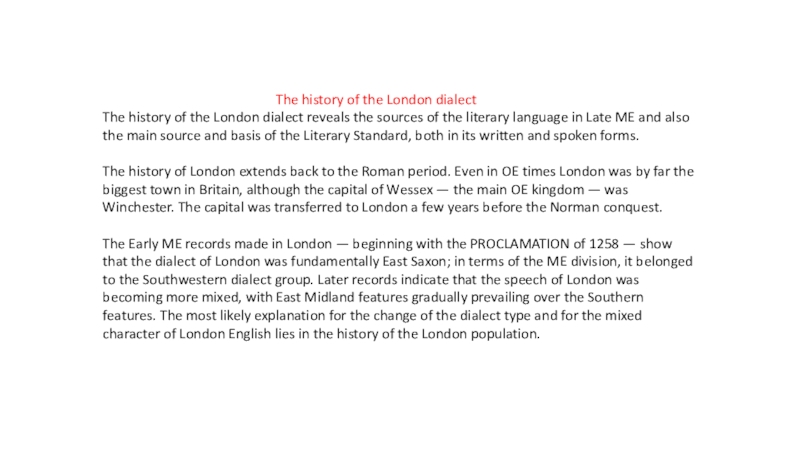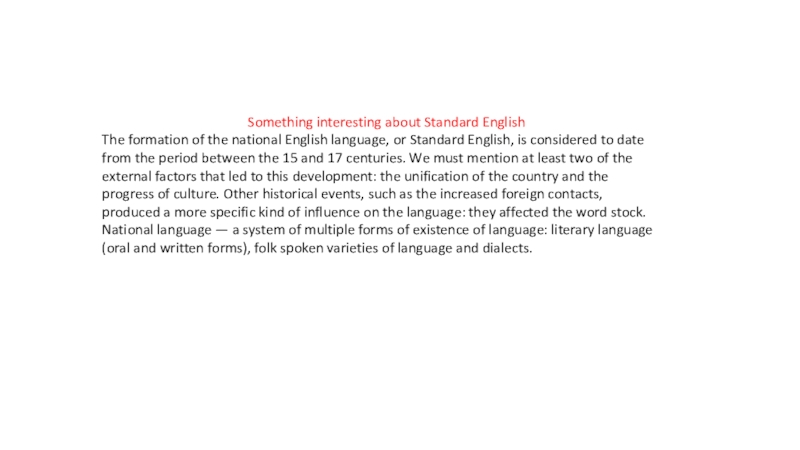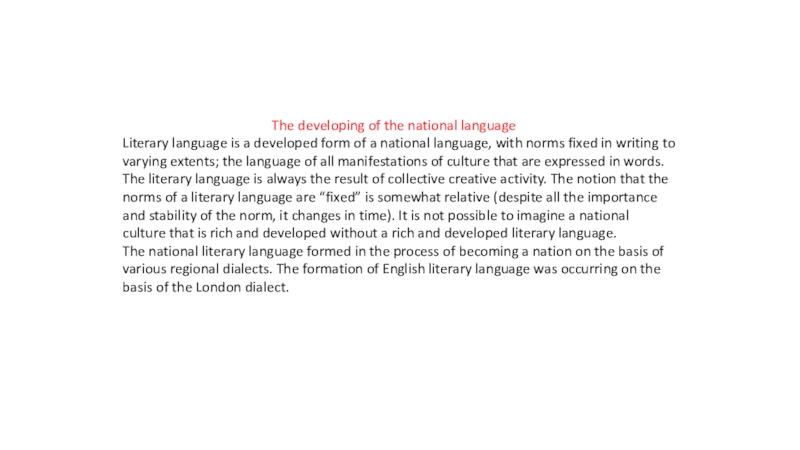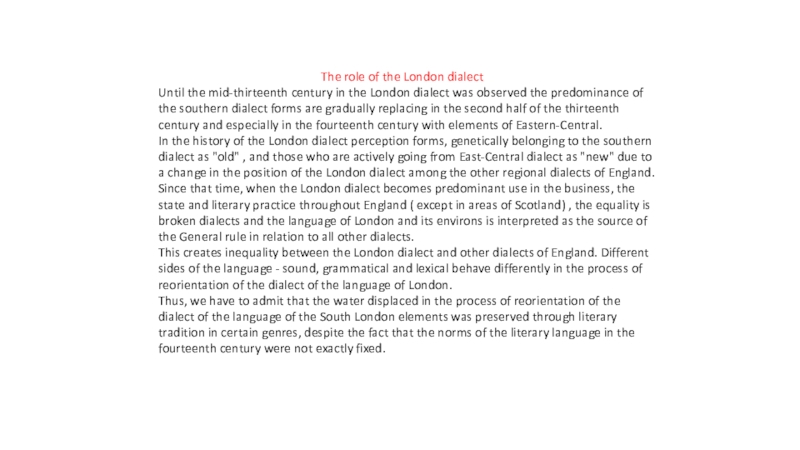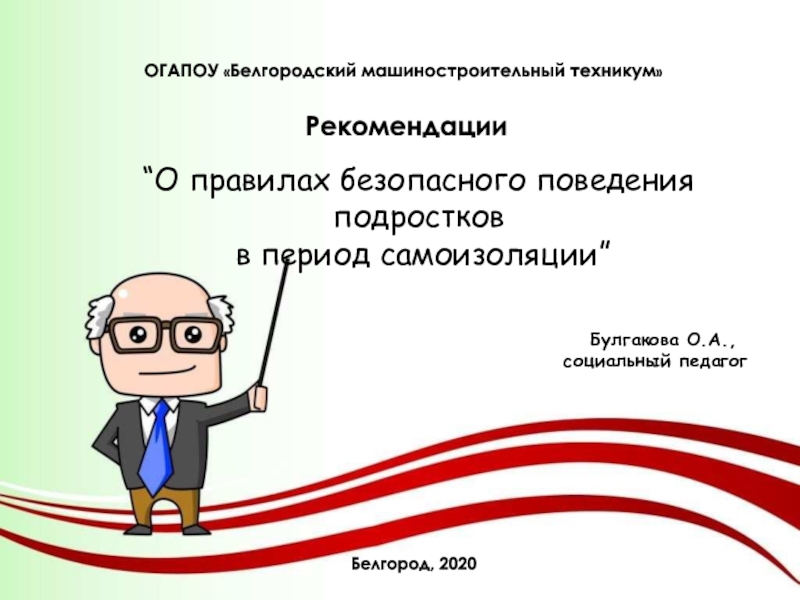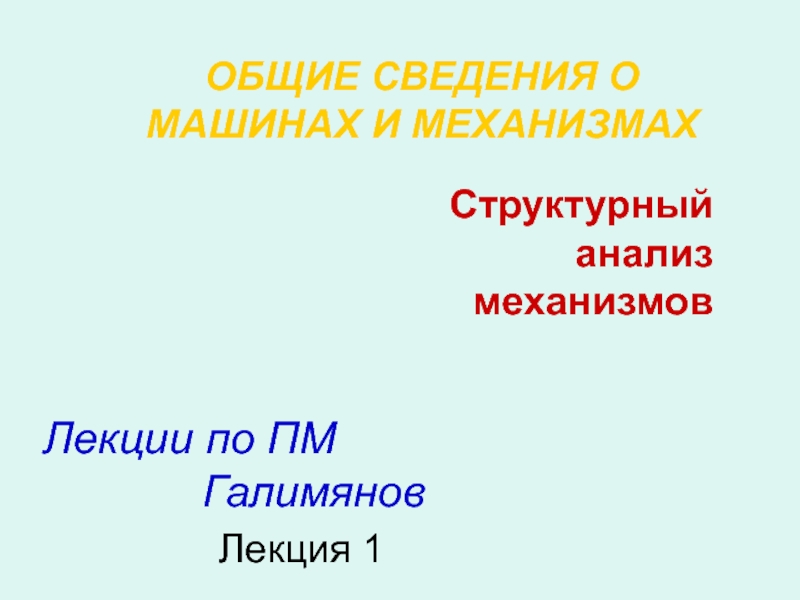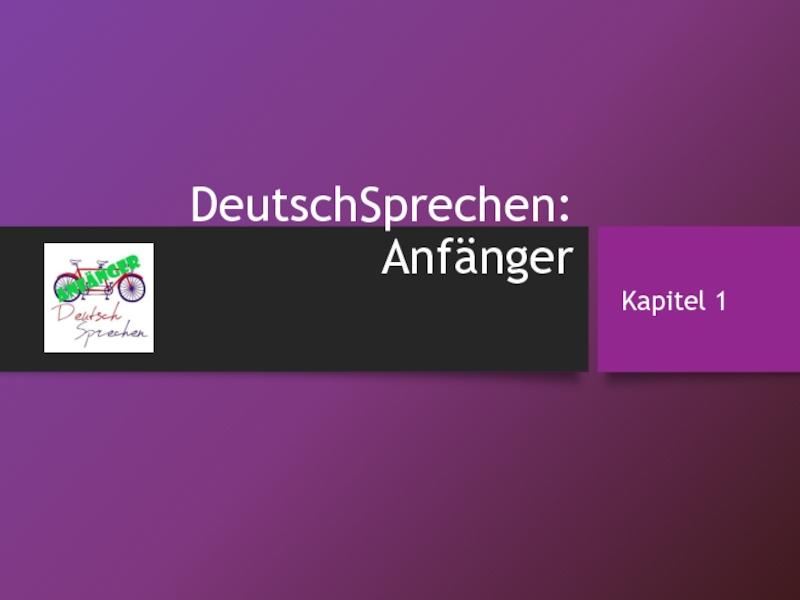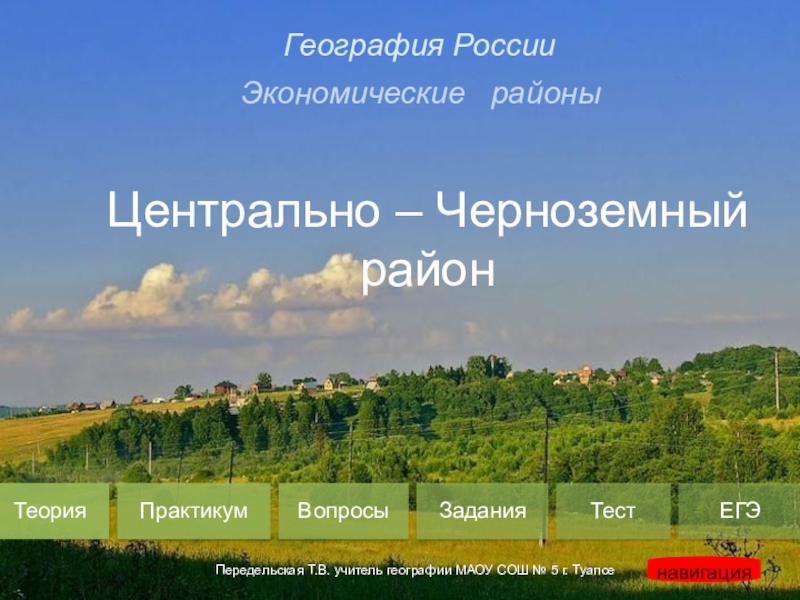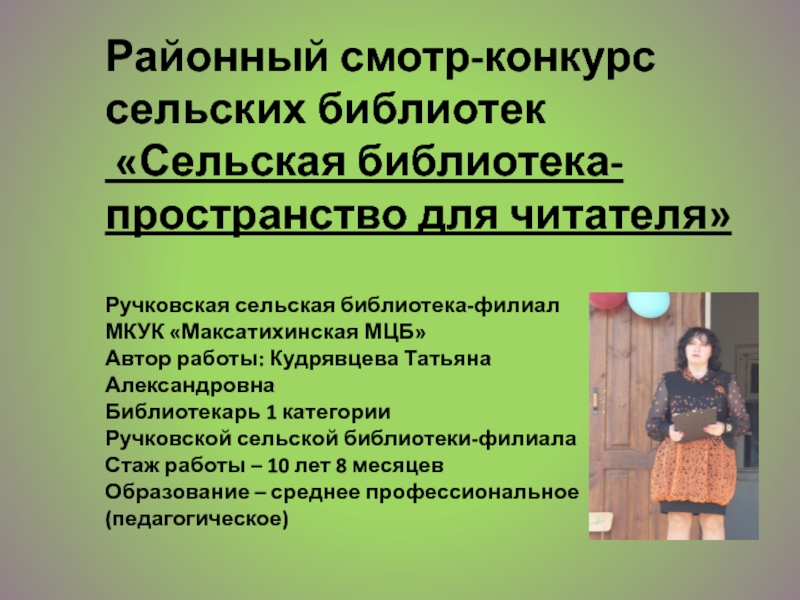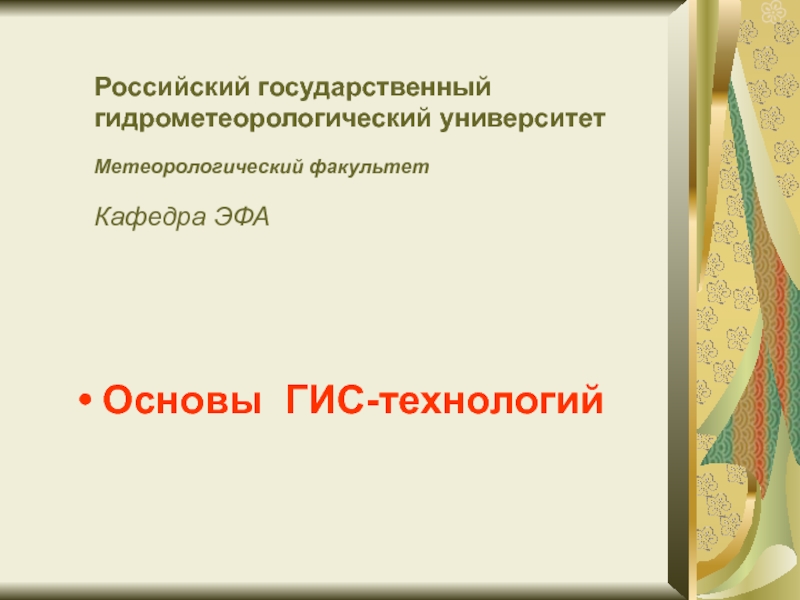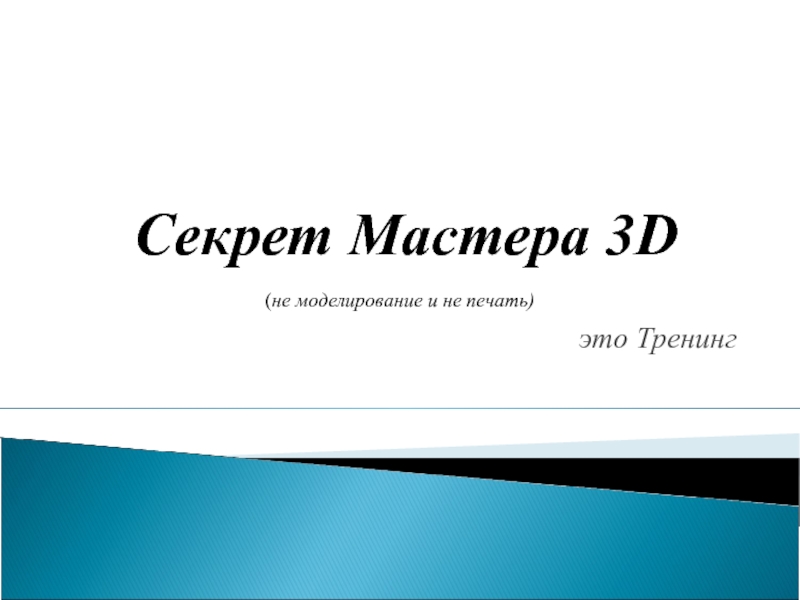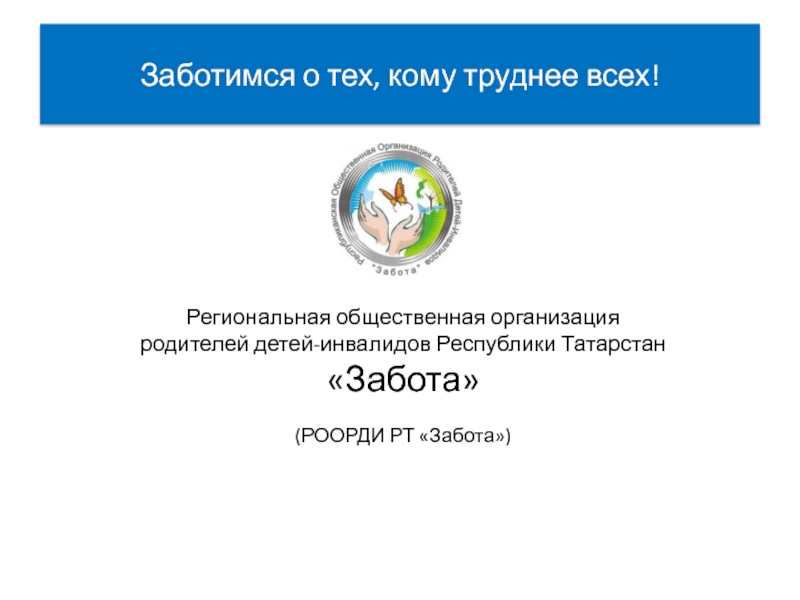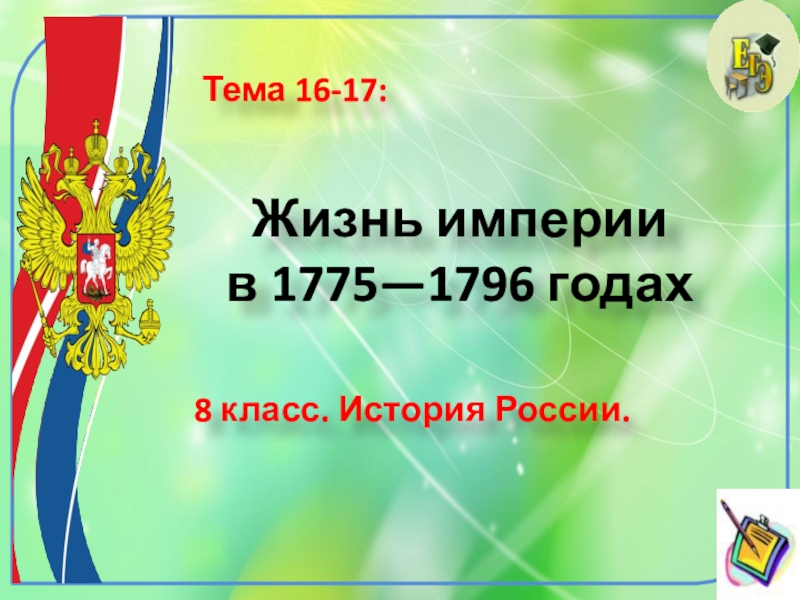Разделы презентаций
- Разное
- Английский язык
- Астрономия
- Алгебра
- Биология
- География
- Геометрия
- Детские презентации
- Информатика
- История
- Литература
- Математика
- Медицина
- Менеджмент
- Музыка
- МХК
- Немецкий язык
- ОБЖ
- Обществознание
- Окружающий мир
- Педагогика
- Русский язык
- Технология
- Физика
- Философия
- Химия
- Шаблоны, картинки для презентаций
- Экология
- Экономика
- Юриспруденция
The role of the London dialect in the formation of "Standard English"
Содержание
The dialect division which evolved in Early ME was on the whole preserved in later periods. In the 14 and 15 c. we find the same grouping of local dialects; the
Слайды и текст этой презентации
Слайд 2The dialect division which evolved in Early ME was on
the whole preserved in later periods. In the 14 and
15 c. we find the same grouping of local dialects; the Southern group, including Kentish and the South-Western dialects, the Midland group with its minute subdivisions and the Northern group. And yet the relations among them were changing. The extension of trade beyond the confines of local boundaries, the growth of towns with a mixed population favoured the intermixture and amalgamation of the regional dialects. More intensive inter-influence of the dialects, among other facts is attested by the penetration of Scandinavian loan-words into the West Midland and Southern dialects from the North and by the spread of French borrowings in the reverse direction. The most important event in the changing linguistic situation was the rise of the London dialect as the prevalent written form of language.Слайд 3
The history of the London dialect
The history of the London dialect reveals the sources of the literary language in Late ME and also the main source and basis of the Literary Standard, both in its written and spoken forms.
The history of London extends back to the Roman period. Even in OE times London was by far the biggest town in Britain, although the capital of Wessex — the main OE kingdom — was Winchester. The capital was transferred to London a few years before the Norman conquest.
The Early ME records made in London — beginning with the PROCLAMATION of 1258 — show that the dialect of London was fundamentally East Saxon; in terms of the ME division, it belonged to the Southwestern dialect group. Later records indicate that the speech of London was becoming more mixed, with East Midland features gradually prevailing over the Southern features. The most likely explanation for the change of the dialect type and for the mixed character of London English lies in the history of the London population.
Слайд 4
Something interesting about Standard English
The formation of the national English language, or Standard English, is considered to date
from the period between the 15 and 17 centuries. We must mention at least two of the
external factors that led to this development: the unification of the country and the
progress of culture. Other historical events, such as the increased foreign contacts,
produced a more specific kind of influence on the language: they affected the word stock.
National language — a system of multiple forms of existence of language: literary language
(oral and written forms), folk spoken varieties of language and dialects.
Слайд 5
The developing of the national language
Literary language is a developed form of a national language, with norms fixed in writing to varying extents; the language of all manifestations of culture that are expressed in words.
The literary language is always the result of collective creative activity. The notion that the
norms of a literary language are “fixed” is somewhat relative (despite all the importance
and stability of the norm, it changes in time). It is not possible to imagine a national culture that is rich and developed without a rich and developed literary language.
The national literary language formed in the process of becoming a nation on the basis of
various regional dialects. The formation of English literary language was occurring on the
basis of the London dialect.
Слайд 6
The role of the London dialect
Until the mid-thirteenth century in the London dialect was observed the predominance of
the southern dialect forms are gradually replacing in the second half of the thirteenth
century and especially in the fourteenth century with elements of Eastern-Central.
In the history of the London dialect perception forms, genetically belonging to the southern
dialect as "old" , and those who are actively going from East-Central dialect as "new" due to
a change in the position of the London dialect among the other regional dialects of England.
Since that time, when the London dialect becomes predominant use in the business, the
state and literary practice throughout England ( except in areas of Scotland) , the equality is
broken dialects and the language of London and its environs is interpreted as the source of
the General rule in relation to all other dialects.
This creates inequality between the London dialect and other dialects of England. Different
sides of the language - sound, grammatical and lexical behave differently in the process of
reorientation of the dialect of the language of London.
Thus, we have to admit that the water displaced in the process of reorientation of the
dialect of the language of the South London elements was preserved through literary
tradition in certain genres, despite the fact that the norms of the literary language in the
fourteenth century were not exactly fixed.
